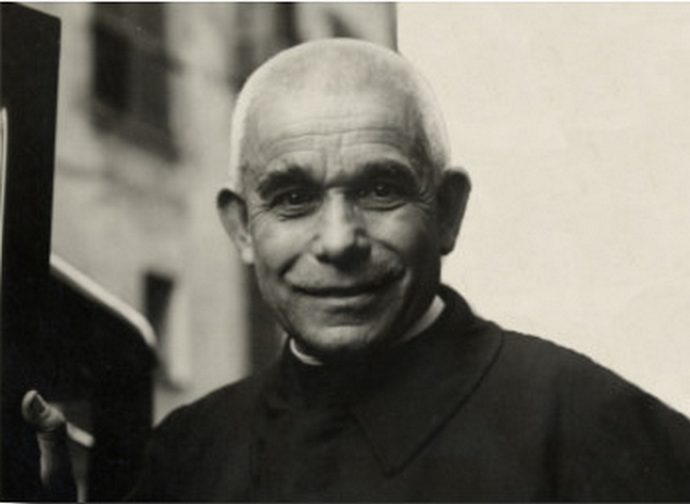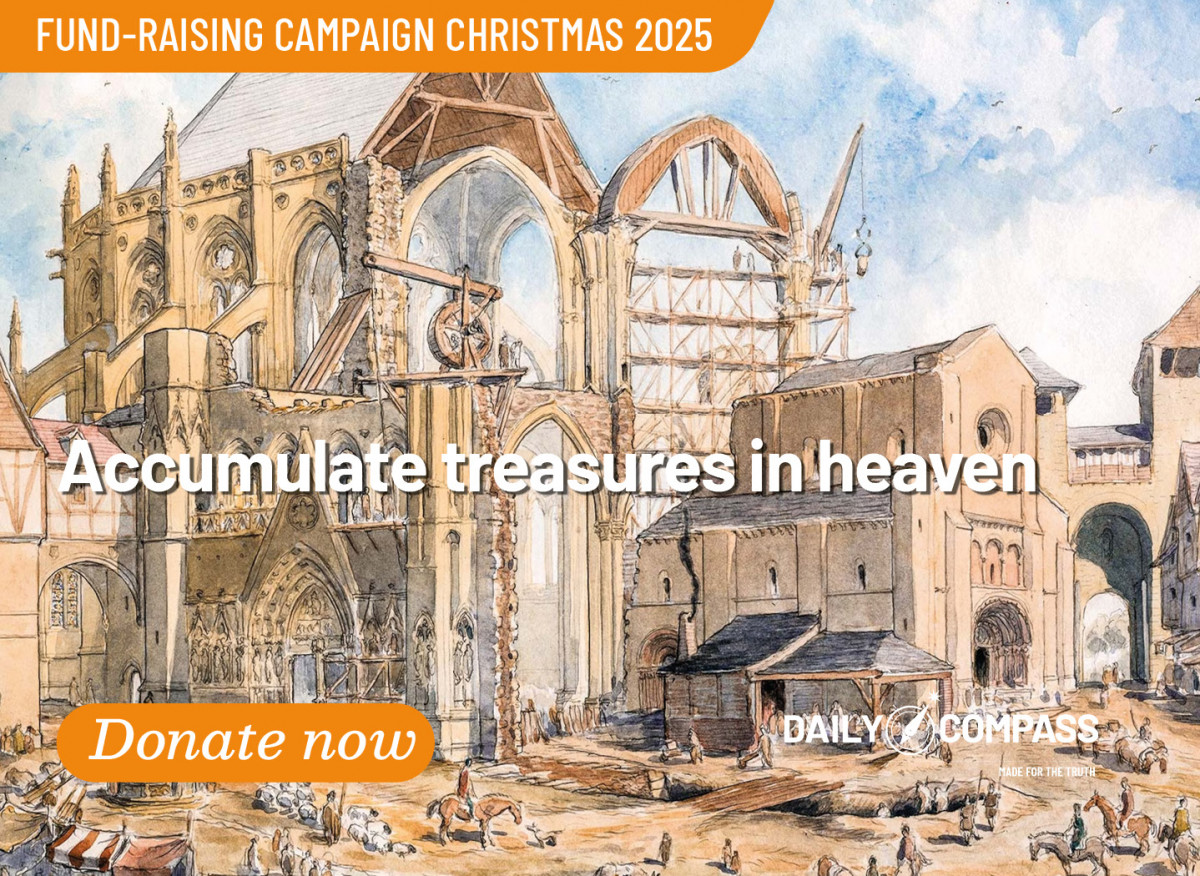Saint Luigi Orione
He was the founder of the Little Work of Divine Providence, an institute that spread like wildfire in Italy and abroad

“Only charity will save the world”, was the lifelong mantra of Saint Luigi Orione (1872-1940), the founder of the Little Work of Divine Providence, an institute that spread like wildfire in Italy and abroad and that just by the name reveals two salient traits of the Piedmontese priest: his humility and his unshakeable trust in God's work in history. Witnessing a country that was rapidly becoming secularised, the saint, highly esteemed by all the popes that he met during his earthly existence (from Leo XIII to Pius XII), and familiar to people of every social class, commented on those very difficult times for society and Faith: “Only charity can still lead hearts and populations to God, and save them. We must prepare ourselves with a great love of God and fill our hearts and veins with the charity of Jesus Christ”.
He was born in Piedmont from an illiterate peasant girl and a street paver, who gave him a Christian education and an aptitude to work and toil. In October 1886 he entered Don Bosco's oratory (1815-1888) in Turin, and from the great saint and educator he learned teachings that he always cherished. Three years later he entered the seminary in Tortona, where he studied philosophy and theology and worked as a caretaker to support himself, staying in a small room above the vaults of the Cathedral. It was at this time, when he was still very young, that he began to gather boys together to teach them the Catechism, inaugurated his first oratory and opened a boarding school for poor children who were eager to study. On 13 April 1895 he was ordained priest and in the following years he intensified his apostolate, involving several other clerics: thus was born the Little Work of Divine Providence, blessed by Leo XIII in 1902 and approved the following year by the Bishop of Tortona.
There were many works of charity in which Don Orione worked tirelessly, from visits to the sick to supporting the needy, from preaching to circulation of the Catholic press. After the earthquake that devastated Messina and Reggio Calabria on 28 December 1908, the saint was fundamental in organising aid, took in many orphans in the houses of his institute and received from Saint Pius X the office of Vicar General of the diocese of Messina. He showed the same impulse towards his fellow man in assisting the earthquake victims of the Marsica region, in 1915, when he himself dug through the rubble and requisitioned a car in the retinue of Victor Emmanuel III to take some children to safety. Among the orphans from Abruzzo to whom he gave shelter was a fifteen year old who would become famous as the author Ignazio Silone. One day the humble priest told him: “My true vocation, this is a secret that I want to confide to you, would be to live as an authentic donkey of God, as an authentic donkey of Divine Providence”.
Also in 1915 he began to open throughout Italy the “Little Cottolengos”, i.e. houses for the education and care of the sick and disabled, and in the same year he founded the Little Missionary Sisters of Charity. In 1927 alongside them he placed the Blind Sisters, Adorers of the Blessed Sacrament (Sacramentine) whom he asked to support with prayer and Eucharistic adoration all the activities of the Orione family, which had already taken root abroad. His whole life was therefore guided by the desire to bring comfort to the suffering, to educate society in the Christian virtues and to save souls. Famously, in 1909, in order not to be blocked by three Freemasons who were preventing access to priests, he disguised himself as a nurse and spiritually assisted the former Prime Minister, Alessandro Fortis, affiliated with Freemasonry and for a long time anticlerical, who converted and received the Sacraments shortly before his death.
Most devoted to Our Lady, he knew that his institute was not born by chance: “Dear benefactors, one can say about the Little Work of Divine Providence, that after God it is all Mary's doing. It was born of Mary, it is maintained by Mary's will. [...] This strength that we have, these words that do you good, the good will that animates us: it is Our Lady who gives them to us, o dear children!”.

